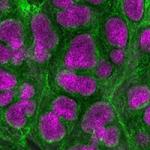
Research Topics
Dr. Berman’s group uses functional neuroimaging to map brain activity and neurochemical mechanisms associated with normal higher cognitive function as well as dysfunction in neuropsychiatric illnesses such as schizophrenia, illnesses having genetic sources of cognitive dysfunction such as Williams syndrome and other conditions impacting cognition such as normal aging. They also study the effects of gonadal steroid hormones on brain function.
Biography
Dr. Berman is a Senior Investigator and Chief of the Section on Integrative Neuroimaging and the Clinical Brain Disorders Branch at the National Institutes of Health, NIMH Intramural Research Program. After receiving her M.D. degree at St. Louis University, she completed a medical internship at Washington University in St. Louis and had residency training in psychiatry at the University of California at San Diego. Dr. Berman also completed residency training in nuclear medicine at the NIH Warren G. Magnusen Clinical Center and is board certified in both psychiatry and nuclear medicine. She has received a number of awards, including the A.E. Bennett Award for Neuropsychiatric Research of the Society of Biological Psychiatry, the National Alliance for Research on Schizophrenia and Depression (NARSAD) Independent Investigator Award, the NIH Bench to Bedside Award, and the NIH Director’s Award for her outstanding pioneering research on Williams Syndrome. Dr. Berman’s research group conducts translational investigations, using multimodal neuroimaging to bridge the gap between neurogenetic, molecular, cellular, and system-level mechanisms of brain dysfunction and the cognitive and behavioral manifestations of neurosychiatric disorders neurodevelopmental and genetic sources such as schizophrenia and Williams syndrome, as well of other conditions impacting cognition such as normal aging. They also study the effects of gonadal steroid hormones on brain function. This body of work has been published in Nature Neuroscience, Neuron, the Journal of Clinical Investigation, the Proceedings of the National Academy of Sciences, and the Journal of Neuroscience, among others.
Selected Publications
- Eisenberg DP, Kohn PD, Hegarty CE, Smith NR, Grogans SE, Czarapata JB, Gregory MD, Apud JA, Berman KF. Clinical correlation but no elevation of striatal dopamine synthesis capacity in two independent cohorts of medication-free individuals with schizophrenia. Mol Psychiatry. 2022;27(2):1241-1247.
- Gregory MD, Mervis CB, Elliott ML, Kippenhan JS, Nash T, B Czarapata J, Prabhakaran R, Roe K, Eisenberg DP, Kohn PD, Berman KF. Williams syndrome hemideletion and LIMK1 variation both affect dorsal stream functional connectivity. Brain. 2019;142(12):3963-3974.
- Dickinson D, Zaidman SR, Giangrande EJ, Eisenberg DP, Gregory MD, Berman KF. Distinct Polygenic Score Profiles in Schizophrenia Subgroups With Different Trajectories of Cognitive Development. Am J Psychiatry. 2020;177(4):298-307.
- Meyer-Lindenberg A, Hariri AR, Munoz KE, Mervis CB, Mattay VS, Morris CA, Berman KF. Neural correlates of genetically abnormal social cognition in Williams syndrome. Nat Neurosci. 2005;8(8):991-3.
- Meyer-Lindenberg A, Miletich RS, Kohn PD, Esposito G, Carson RE, Quarantelli M, Weinberger DR, Berman KF. Reduced prefrontal activity predicts exaggerated striatal dopaminergic function in schizophrenia. Nat Neurosci. 2002;5(3):267-71.
Related Scientific Focus Areas


Social and Behavioral Sciences
View additional Principal Investigators in Social and Behavioral Sciences



This page was last updated on Saturday, August 19, 2023